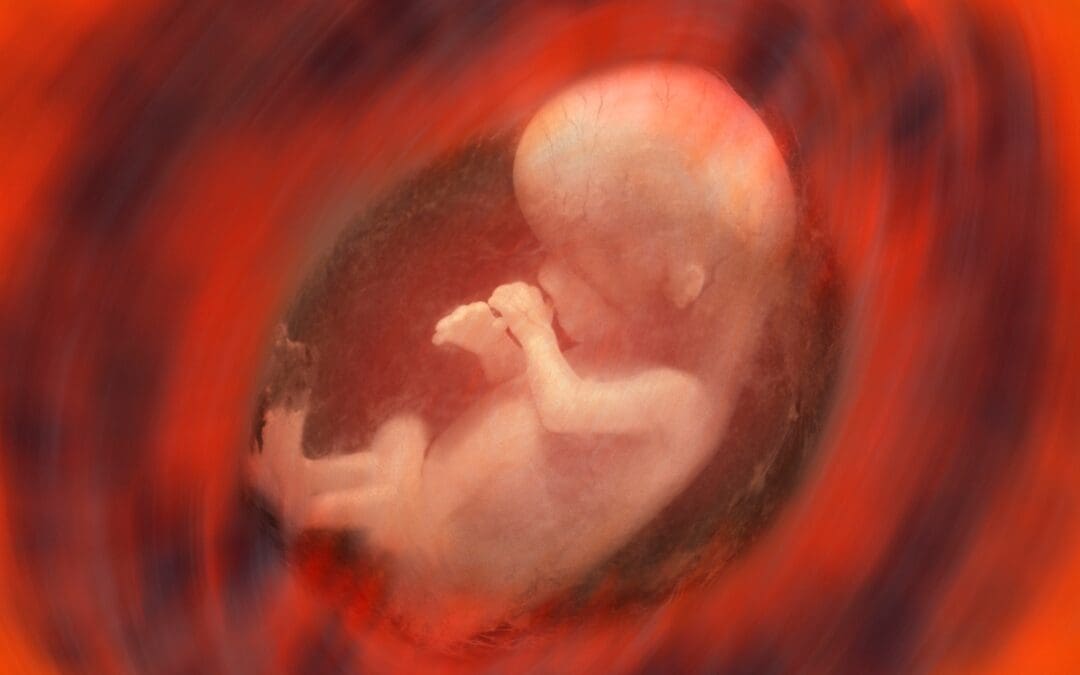In a recent interview on BBC, Melissa Ohden shared her story of how her life was meant to be ended shortly after it had begun. Her mother had a saline abortion, meant to end Melissa’s life in the womb so she could be delivered stillborn.
But she survived.
A passing nurse heard the tiny baby making weak noises and saw movement, so Melissa was taken to the Neonatal Intensive Care Unit. Born prematurely and weighing around 2 pounds, Melissa’s chances were not ideal. She suffered from seizures and respiratory, and liver problems. Doctors feared she might suffer long-lasting health implications, or not survive at all. But Melissa yet again proved stronger than anyone expected of her, going on to live a healthy life.
One month after her surprising survival, Melissa was taken home by her adoptive family. But her story didn’t end there.
Until she was fourteen, Melissa had no idea she was an abortion survivor. The revelation slipped out in an argument when her sister said, “You know Melissa, at least my biological parents wanted me.” Melissa was shocked. “I grew up knowing I’d been born prematurely, that I had been adopted,” she said in a recent interview. “What I didn’t know was that there was this great secret behind all of this. That I should have been delivered dead, and instead I was born alive.” After her parents explained her story, Melissa began a downward spiral. She struggled with an eating disorder and became involved with alcohol abuse. At 19, Melissa decided to seek out her birth mother. The two weren’t able to connect until 2007, over ten years later.
Melissa discovered that for 30 years, her birth mother believed she was dead. Melissa’s birth mother told her, “After you were born, my mother told me you were a girl, but told me not to look at you. ‘She’s hideous,’ she said. I suspected you were alive at first but was told emphatically that you were dead.” In an interview, Melissa said about her birth mother, “She was not told I survived. It was kept a secret from her. I was placed for adoption without her ever knowing.”
Melissa describes the emotional day she met her mother in her recently published book. “We hugged for a long time – so much love and pain, hope and forgiveness were communicated in that embrace.” Melissa learned that her mother deeply regretted the abortion. At 19, unmarried, and a college student, her mother felt powerless in the face of her family’s anger, shame, and fear for their reputation. For her family, marrying the father was the most unacceptable outcome of all – and they made it clear that Melissa’s birth mother had no choice in the matter. They arranged the abortion for her, even though she was against it. Melissa was deeply impacted by her mother’s regret.
Though both women were hurt by the attempted abortion, they have been able to experience healing. Melissa and her birth mother both ended up living in Kansas City, so they are able to see each other often. Melissa says about her birth-mother, “Her pain haunted me for a very long time after that, but now I get to also experience her joy.”
Because of her experience, Melissa is motivated to be a “voice for the voiceless.” Some of her efforts include being a speaker for Feminists for Life, testifying in the House and Senate, and being on the board of Directors for the Vitae Foundation, which is focused on fostering a culture of life through media. She founded The Abortion Survivor’s Network, which seeks to educate the public about abortion survivors and to provide support for fellow survivors. Melissa has spoken on several radio and television programs. Last January she published You Carried Me: A Daughter’s Memoir. The book is about “her search for her biological parents and her own journey from anger and shame to faith and forgiveness,” according to the publisher.
Melissa’s story shows the complexities involved in abortion and the lasting pain that results. Melissa was thrown into a downward spiral when she learned that her birth mother had tried to abort her. “I didn’t want to be me,” she says about that part of her life. Melissa’s birth mother grieved deeply for the child she thought was dead, and the abortion that she had felt powerless to stop. But Melissa’s story also shows how God can bring beauty out of that pain. Melissa has found hope through her faith in Christ and sees God’s hand in her survival and story.
Because she lived, she has been able to advocate for those like herself who have no voice. She testified in the House and Senate to convince legislators to pass laws protecting the babies who survived abortion. She started an organization to help people learn about abortion survivors and to provide support to those who, like her, lived through an abortion attempt. Last year, Care Net was pleased to have Melissa speak at our annual National Conference to staff and volunteers from our network of affiliated pregnancy centers. God not only preserved Melissa’s life, but allowed her to find abundant life in Him.
On Melissa’s website: she says of her story, “After years of searching for her biological family and offering them forgiveness for the decision that was made to end her life, Melissa’s story, and her life, is so much more than one of survival. It’s evidence of the intergenerational impact of abortion on all of our lives. More importantly, it’s a testament to the beauty of God’s grace in our lives, the power of love, and the transformational power of forgiveness and in answering God’s call for your life.”
Watch Melissa tell her story here.

